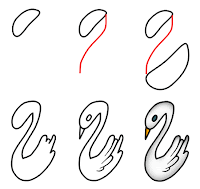I love to score the web for valuable information. During this search I came across many online resources which are difficult to find our with normal search. This post offers useful and valuable links for educators, students, librarian's, families, businesses and every person who love to browse the net.
* 'LibrarySpot.com' is a resource for online research by offering library and reference sites.
More about the site (In their own words)
'Sites featured on LibrarySpot.com are hand-selected and reviewed by our editorial team for their exceptional quality, content and utility. Published by StartSpot Mediaworks, Inc. in the Northwestern University/Evanston Research Park in Evanston, Ill., LibrarySpot.com is the first in a family of vertical information portals designed to make finding the best topical information on the Internet a quick, easy and enjoyable experience.
To date, LibrarySpot.com has received more than 30 awards and honors.
Most recently, Forbes.com selected LibrarySpot.com as a "Forbes Favorite" site, the best in the reference category, and PC Magazine named it one of the Top 100 Web Sites. LibrarySpot.com has been featured on CNN, Good Morning America, CNBC and in many other media outlets.'
- 'HomeworkSpot.com' is a sister site of 'LibrarySpot' and is a valuable source for students, parents and educator.
It offers free homework information portal that features the very best K-12 homework-related sites together with engaging editorial in one high-utility, educational spot. With the help of students, parents and teachers, their team of educators, librarians and journalists has scoured the Web to bring you the best resources for English, math, science, history, art, music, technology, foreign language, college prep, health, life skills, extracurricular activities and much more. For your convenience, we have made every effort to organize these resources into grade-appropriate categories for elementary, middle and high school.
* 'Digital Librarian' is an online resource from Margaret Vail Anderson, a librarian in Cortland, New York, offering best of the web sites around the net. Home page shows topics which takes you to another page with lots of more useful links and resources.
* 'The British Library' offers 14 million books, 920,000 journal and newspaper titles, 58 million patents, 3 million sound recordings, and so much more.
* 'Awesome Library' organizes the Web with 37,000 carefully reviewed resources, including the top 5 percent in education.
thousands of the best academic information websites, selected by teachers and library professionals worldwide, in order to provide to students and teachers current, valid information for school and university academic projects!
The Virtual LRC is both a dedicated index of over 10,000 web pages maintained by a real human being, as well as a meta-search engine that includes in its results information gleaned from many of the best research portals and university and public library Internet subject guides recommended by teachers and librarians.
The VLRC includes selected sites in a growing list of subject/information areas including: full-text magazines, newspapers, electronic text archives, art history, biography, biology, career information, psychology, history, government information, literature, medical information, social sciences, legal information, American Civil War, Art, Careers, Crime, Directories, Economics, Education, English Language, Electronic Texts, Foreign Languages, Geography, Genealogy, Government Information,Health/Medical, History, Legal Information, Lesson Plans, Literature, Mathematics, Music, Reference, Science, Technology, Tutorials on the Web, and Writing Style Guides.
* 'Access my library' offers free access to premium content you can trust. Browse and read over 30 million articles for business, education, and general research needs – absolutely free!
Their goal (In their own words)
Our goal is to help you access information from credible sources while making the offerings of local libraries more accessible. We do this by using our technology to help people find this content, which search engines usually cannot access.
AccessMyLibrary also includes articles from HighBeam Research, which is a part of the Gale family. HighBeam offers even more research content, including access to archives from more than 6,500 publications.
is a blog with resources of interest to information professionals, educators and journalists. It is a blog so unlike other sites you need to start search from 'categories' links.
 Calligraphy is generally recognized as the Art of Beautiful Writing. It is also called typography. You can easily learn calligraphy with some practice at home while getting online help. There are many sites which offer free tutorials to start learning calligraphy. You can start learning with simple writing instruments or tools and paper.
Calligraphy is generally recognized as the Art of Beautiful Writing. It is also called typography. You can easily learn calligraphy with some practice at home while getting online help. There are many sites which offer free tutorials to start learning calligraphy. You can start learning with simple writing instruments or tools and paper. 








